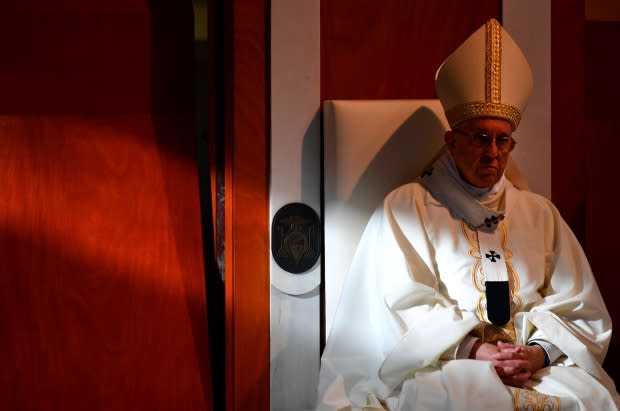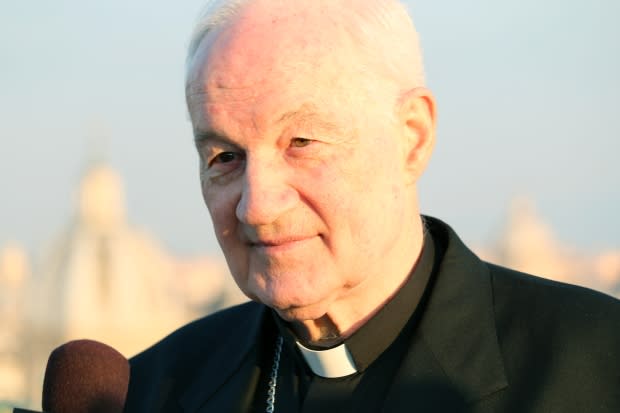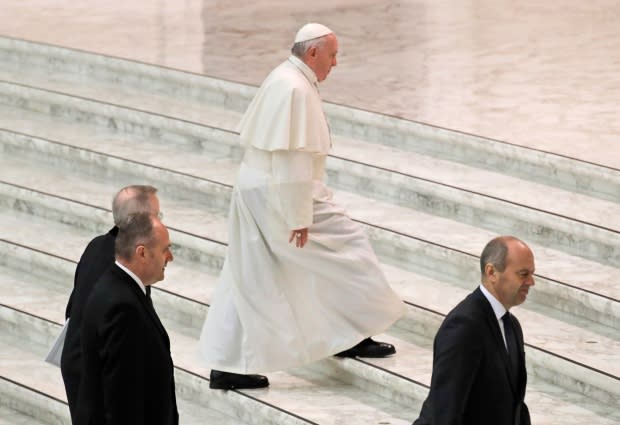'They need right now to be Christ-like': Victims and critics want more than talk on sex abuse in the Church
They have been summoned from 130 countries around the world. Nearly 200 bishops and other church leaders, ordered to the Vatican by the Pope, to address "the protection of minors in the Church" at a major conference starting Thursday.
To critics, that's a benign way of referring to the systemic sexual abuse by priests and other Roman Catholic clergy of tens of thousands of children around the world over the past four decades — and its subsequent cover-up.
The Pope's top Canadian at the Vatican said the Church made mistakes. That 25 years ago, there was a belief that with some psychological therapy a pedophile could be healed and returned to ministry, but it knows now that this is not true.
In an interview with CBC News from Rome, Cardinal Marc Ouellet said the Church was also not aware back then of "the depth of the pain and the consequences of these abuses on children."
"In fact, we've learned it was much more serious than we expected."

While there is hope both in and outside the Church that this summit will mark a turning point from the ugly history of sexual abuse, others feel it will offer more of what has been seen and done before.
"Various other popes were involved in this kind of thing [in the past]," said David Deane, associate professor at Atlantic School of Theology in Halifax. "And it led to probably what this kind of event can lead to, which is very low level apologies, handwringing, admitting of guilt."
The Vatican itself has sought to set the bar low ahead of the four-day summit, saying it will be about reflection and discussion. Pope Francis himself has called the meeting the "beginning of a dialogue."
He did not heed a call from childhood sexual abuse victims in Rome ahead of the summit opening to speak with them. They met instead with Vatican officials.
On Thursday, Francis stressed the importance of following through on what is discussed at the gathering of 190 leaders of bishops conferences and religious orders.
"Listen to the cry of the young, who want justice," he said. "The holy people of God are watching and expect not just simple and obvious condemnations, but efficient and concrete measures to be established."

Still, Ouellet calls the Church's will to change "a moment of hope."
"This conviction is now on the way," he said, "and will be deeply rooted." Change, he added, will be reflected in "measures and protocols" undertaken all over the world.
That kind of language concerns Deane, who is currently involved in a project looking at the Roman Catholic Church leadership's response to accusations of sexual abuse against priests.
"My fear is that what will come out of this summit is a further commitment to developing good protocols and procedures."
They are frightened. They don't want to become vulnerable… But they need right now to be Christ-like. - David Deane, Atlantic School of Theology
Deane believes what's needed instead of another summit is a full, transparent investigation of the church over the past 30 to 40 years, conducted by a diverse body of lay women and men, including people from outside the Catholic Church. No bishops, no pope.
"Only when that happens," he said, "is the Church viable as a church again."

The problem right now, according to Deane, is that Pope Francis doesn't understand that. There is will to move forward, he said, not to look back.
"They are frightened. They don't want to become vulnerable … But they need right now to be Christ-like. And this involves risking everything, risking their reputation, risking their name, risking the future of the church in order to see justice done for the victims."
30 years of horrific cover-up
Ouellet said the Church has already learned from the past.
"The Church knows better now and is determined and has more tools to go forward, and really bring healing and understanding and correction for the future."
That's not enough for Deane. After 30 years of horrific cover-up, he said, only a full, transparent investigation of the past will suffice.
"My hope is that from speaking to victims, from hearing victims' stories, and from remembering the faith that obviously drove them at various stages of their life that they could do what needs to be done. Which is to potentially strip off the layers of protection and power and prestige and to be naked before God in the world and say, 'this is who we are. We have done terrible things. Sometimes through malice, most often through ignorance. And we need to reform.'"


